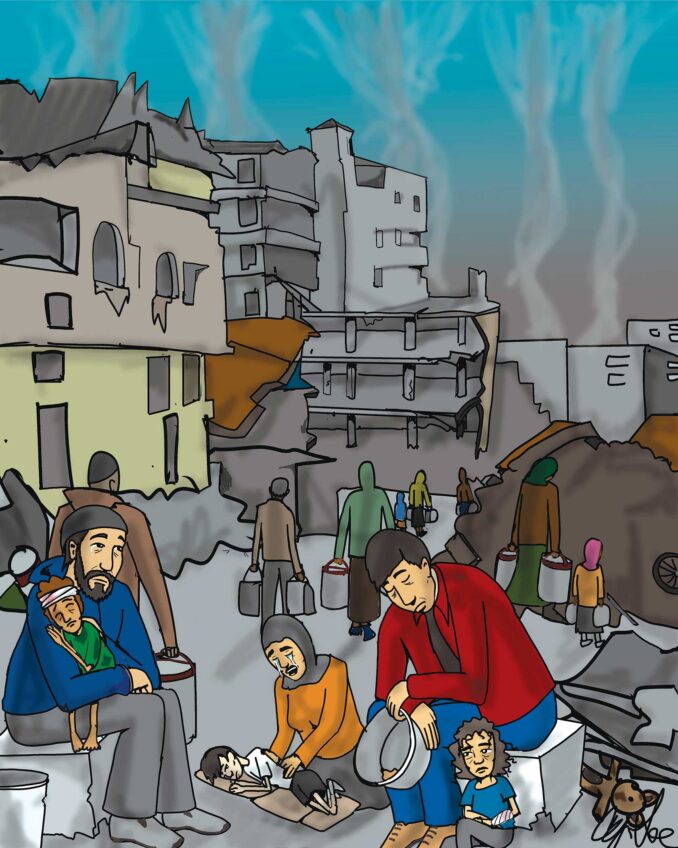Saving more lives through improving trust, technology and training in organ donation
Every day, more than 100,000 Americans wait for an organ transplant that could save their lives. Despite over a decade of reaching record donor and transplant numbers in the United States each year, the need remains high. August is National Multiethnic Donor Awareness Month, a time to call attention to the improvement and innovation needed to meet the needs of those waiting.
There are three aspects of donation where we can drive change: trust, technology and training. Increase trust in the system, improve technology and expand training for the next generation of clinicians. Through intentional work in these areas, we can expand access to life-saving transplants for everyone.
Building public trust in organ donation
The success of organ donation depends on one thing above all: public trust. Families say yes to donation often as they grieve the loss of a loved one. The decision to authorize donation must be rooted in confidence that the system is empathetic, ethical, fair and accountable. It’s important to keep in mind the following facts:
• Medical professionals are trained to work their hardest to keep their patients healthy and alive, no matter their organ donor status.
• Hospital staff and organ procurement specialists keep donor-patient safety and the donor family at the center of their work.
• Organ donation comes at no financial cost to the donor family.
• The wealthy and famous do not get preference on the national transplant waitlist. Wealth is not a factor. The computerized waitlist considers factors such as medical urgency, geographic proximity to the donor and organ compatibility.
Dispelling myths like these helps instill trust not just for those considering donor registration but for those waiting for a transplant. Every patient, regardless of ZIP Code, sex, race or ethnicity, should know the system strives to provide each of them an equal chance of receiving a transplant based on medical urgency, time waiting, biological matching and other factors that work to increase the chances of a successful transplant.
Building trust requires not only better informing the public but also building transparent communication that emphasizes humanity at the center of the donation process.
Needed technology improvements in the organ donation process
Technology has undoubtedly revolutionized organ transplantation. We now have tools, such as organ perfusion technology, which can keep donated kidneys, hearts, lungs and livers viable for hours or days outside the donor’s body. That means organs that once may have gone unused can now save lives. In many cases, the technology can also improve the organ’s function while on the perfusion machine.
Organ Procurement Organizations like the one I work at, as a multicultural outreach coordinator at New England Donor Services (NEDS), work closely with innovators of such devices. These collaborations have allowed for the creation, testing and deployment of devices that expand transplant opportunities for organs that previously would have gone unused.
In addition, the potential for an AI-driven matching system for the transplant waitlist that can better predict which organs will do well in which patients would be a valuable development. This would cut down on the many hours spent finding a home for every recovered organ while at the same time reducing complications and improving transplant outcomes. Such AI tools are currently being developed to improve the efficacy and effectiveness of organ allocation.
Training the next generation of transplant professionals
Organ donation and transplantation are one of the most complex, high-stakes areas of medicine. It requires not only technical skills but compassion and resilience. Yet for many medical students, the field may remain an afterthought and may not be introduced at all.
Expanding the pipeline of trained transplant and donation professionals is needed to maintain and expand our nation’s capacity for more transplants. At NEDS, we recently celebrated the graduation of our inaugural class from our Galen V. Henderson, MD Program. The program is an eight-week immersive experience for medical students in New England to learn about the role of organ donation and transplantation in health care, help students better understand the full scope of the transplant journey and learn about potential career paths in organ donation and transplantation.
Increasing trust, leveraging technology and training new donation and transplant professionals are necessary, life-saving imperatives. While the U.S. transplant system improves each year, with increasing donors and transplants for 14 years in a row, the success can only continue if we identify and confront roadblocks. By committing to improvement in these three target areas, we can reach a place where every patient awaiting a transplant has a chance at receiving the organ they need.
Menen Crawlle is a Multicultural Community Outreach Coordinator of New England Donor Services (NEDS), a leading non-profit organization that coordinates organ and tissue donation across Massachusetts and New England.







Leave a Reply
You must be logged in to post a comment.